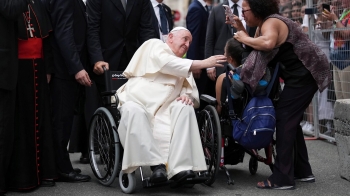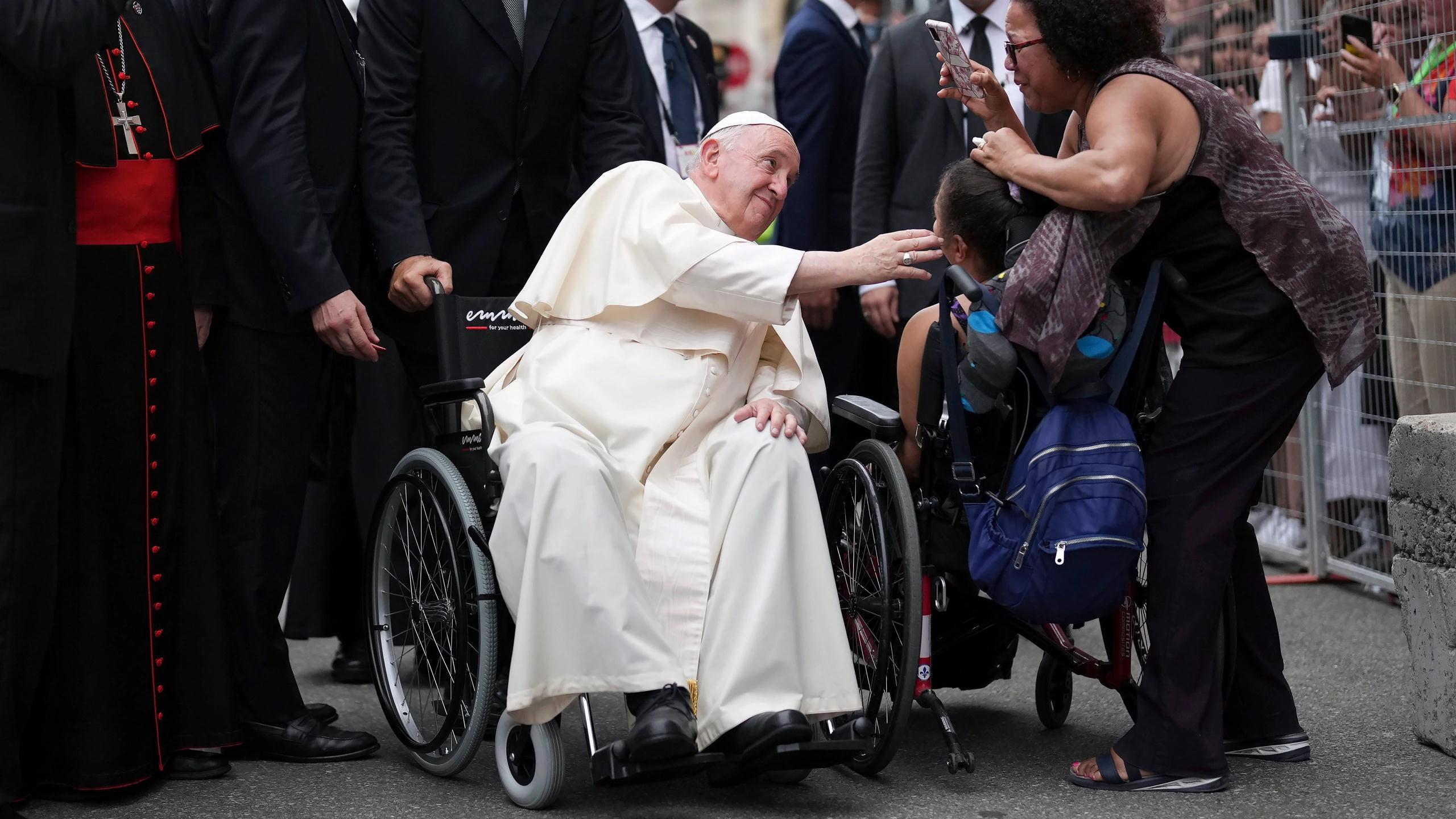
.png) Sunny Jacob
Sunny Jacob

"Suffering is a call to conversion; it reminds us of our frailty and vulnerability," says Pope Francis, the 87-year-old Pontiff. He finds it difficult to walk due to a severe knee problem. He had suffered a small fracture in the knee when he took a mis-step while a ligament was inflamed. In fact, Pope Francis is suffering from an arthritic process which is affecting various joints. He is a man of hope in the midst of troubles.
But look at him, he is cheerful, and busy. He does all the works and prayers without any difficulty. He walks with the help of a walking stick, and moves on a wheel chair, addresses people, meets dignitaries, blesses all who meet him. Pope Francis walks forward, teaches the world to be cheerful in the midst of pains and sufferings, wars and violence. I feel, he is a sign of God, a prophet of our times.
It is not only his physical pain that affects the Pope. The ongoing war between Russia and Ukraine, the making of millions of refugees and migrants in Central Asia and Middle East, the mindless kidnapping and persecution of people in Africa, the rigidity of political powers, the increasing religious discrimination, the ongoing prejudices against religions, the massively impacted pandemic, and the selfish nature of religious and political leaders, the mindless expoitation of Ecology by corporate houses, the erroneous policies of some governments, etc. cause worries to the Pope. Yet, he is hopeful, trying to bring all people of goodwill to come together to compact the destructive forces. He is a sign of Hope for the world.
“We must fan the flame of hope that has been given to us, and help everyone to gain new strength and certainty by looking to the future with an open spirit, a trusting heart, and a far-sighted vision,” Pope Francis wrote in a letter to Archbishop Rino Fisichella. The motto of Pope Francis, on his coat of arms, “miserando atque eligendo” is taken from a homily by Saint Bede, roughly translates to “having mercy, he called him.” This motto is self-reflective in the life of the Pope. We are stewards of creation, called to ensure fruits of the earth are shared by all, not to exploit the earth or destroy it, says the Pope.
The Pope, even in his physical pain, is bent on sharing true joy with people whom he meets with. I am so touched by a picture where Pope Francis consoles a woman who is on a wheelchair like him. This makes me to think of our call to be an instrument of God’s mercy and love. We are called to be joyful and sharing God’s love with all, especially the weak, the marginalised, the refugees, the migrants, the sick and the suffering. However, often we are concerned about our own ‘aches and pains’. Very often our concerns are very limited and narrow. Our priorities are immediate, and our focus is very constrained. We have misplaced priorities and caught up in vicious circles of ritualistic nuances or parochial concerns.
When we look at the Catholic Church and its history, we must admit its manyfold shortcomings and frailties. Yet, we must not forget its resilience and depth. The church has not crumbled itself in its self-deception and sins -- the Crusades, the Inquisition, and its most recent child abuse scandals, or under the weight of the onslaught of secularisation of Europe. In and through all these negativities, the Church navigated for more than 2,000 years and still moving ahead. The Second Vatican Council, which addressed issues between the church and the modern world, certainly reflects its ability to learn and grow.
The Catholic Church, with its glaring failures, reminds us there is hope for us. Yes, the Church has failed on many occasions. But it has stood as a beacon to the world with values of love, forgiveness, compassion, charity, faith and hope too. When we look at the Church and ourselves, we see, like the exodus journey, collectively as a Church and individually as each person, regardless of our human failures, we have had the Divine interventions to pick ourselves back up again, to journey in the way of faith.
For us, Pope Francis symbolises hope. He is a Divine intervention in our times. As an amazing Argentine Jesuit, he has a spirituality committed to contemplation and action in the world. And he represents a theology that acknowledges the salvific grace of deprived persons.
It is apt that the Pope chose the name of St. Francis of Assisi. Numerous occasions he demonstrated similarities with Francis of Assisi. Like St. Francis of Assisi, the Pope is committed to interfaith dialogue. Francis has demonstrated Church’s commitment to respect and to befriending people of other faiths; a necessity in today’s pluralistic world. We have seen it in ample instances. Like St. Francis was called to rebuild the church of his day, the Pope is now doing the same.
Of course, there are several issues that affect the Church. However, the Pope is showing us the way. They Synodal Church proposed by him is a great opportunity for the Church to be relevant in today’s world. Nothing is impossible, if we too, who are ‘called to be saints, just like the multitude of witnesses before us, become heralds of hope for the world’. As Pope Francis exhorts young people, "Live, love, believe, and with God's grace, never despair." He is a sign of God’s presence among us, and so, we hope.
(sunnyjacobsj@gmail.com)